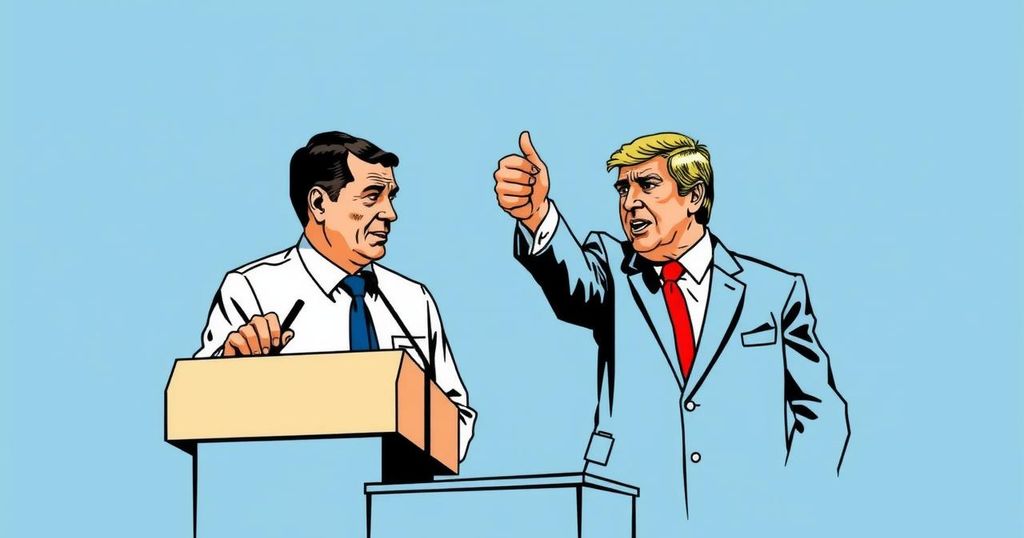World news
2024 ELECTIONS, ALVARO DELGADO, ARGENTINA, ASIA, BRAZIL, BROAD FRONT, COLORADO PARTY, DELGADO, ELECTION, ELECTIONS, LAC, LACALLE POU, MEXICO, NATIONAL PARTY, NORTH AMERICA, OR, ORSI, PHILIPPINES, PRESIDENTIAL ELECTION, ROSARIO GUSQUE, SENATE, SOUTH AMERICA, TRADE RELATIONS, VOTER TURNOUT, YA, YAMANDU ORSI
Marisol Gonzalez
0 Comments
Uruguay Presidential Runoff: A Tight Race Between Orsi and Delgado
Uruguay’s presidential runoff on November 24 features center-left candidate Yamandu Orsi against conservative Alvaro Delgado in a closely fought election. Polling indicates a razor-thin margin between the candidates, with economic conditions playing a crucial role in voter sentiment. Both candidates seek to appeal to undecided voters and those from smaller parties, as they navigate a politically stable but nuanced electoral landscape.
On November 24, voters in Uruguay will participate in a closely contested presidential runoff between the center-left opposition candidate, Yamandu Orsi, and conservative candidate Alvaro Delgado. Orsi, representing the Broad Front, garnered 43.9% of the first-round vote, while Delgado, supported by the conservative Colorado Party, received 26.8%. The electoral landscape in Uruguay is noted for its relative stability and lack of extreme political division compared to other Latin American nations. As ballot stations open at 8 a.m., both candidates aim to sway undecided voters, especially from smaller parties and those who abstained in the first round. Analysts suggest that despite global trends of incumbent parties losing ground, a robust Uruguayan economy may favor Delgado in the runoff. With only 25,000 votes potentially separating the candidates, the outcome of this election will be pivotal for the nation’s political future.
Uruguay is known for its political stability and relative economic prosperity compared to its regional neighbors. The upcoming runoff is a critical moment in its electoral calendar, especially following a year filled with important elections across South America. The political arena in Uruguay is characterized by moderate parties that show a significant degree of overlap between conservative and liberal ideologies, making the upcoming vote less polarized. Given the global context of declining popularity for incumbent parties, it will be interesting to observe whether Uruguay follows this trend or maintains its support for continuity in governance.
In summary, Uruguay’s presidential runoff on November 24 is set to be a tightly contested race, reflecting the nuances of its political landscape. Candidates Yamandu Orsi and Alvaro Delgado represent differing visions for the country, yet both aim to reassure voters about economic stability. The election will determine if Uruguayan voters choose change or continuity, amid a backdrop of global political shifts and economic challenges.
Original Source: www.arabnews.com




Post Comment